Before going solo, every creator knows they’re taking on a significant amount of risk. Being “self-employed” isn’t easy and requires you to wear many hats at various times. Now you have to wear the hat of a risk manager.
A risk manager is someone who assesses the risk of a company or business and creates a strategy that reduces the negative impact that risk will have on said company or business. At present, risk managers certainly have their work cut out for them, as do creators.
But, who can plan for an international disaster of this magnitude while maintaining a sense of generosity and altruism?
As creators, we do have a responsibility to ensure that our plans don’t devolve into “each man for himself.”
So, keep that in mind when you’re conducting your risk assessment.
Preparing A Risk Assessment
Now that we’re in the thick of the COVID-19 pandemic – countries going into nationwide lockdown and widespread travel and business bans – you don’t need to wonder what a pandemic will do to your business, you already know what it will do.
Although this is not an ideal time to be preparing your risk assessment, it’s certainly not the time to forego creating a plan because you hope we’ve seen the worst of the pandemic. Rather, it’s time to change hats and do your best impression of a risk manager.
1// Identify At-Risk Plans and Projects
This first step is as simple as getting a piece of paper and a pen, opening your notes, or opening a Google Doc, and start working.
Start by listing any projects you have in the pipelines that could be or have already been affected. Next, you’ll need to list who (within your team) could be hit by your projects and plans being affected, as this will help you consider the overall impact this pandemic will have
You’ll work in three columns.
The first column will be a list of projects, goals, or plans that could be affected by these current events. The second column will list how your projects, plans, or goals could be affected (postponed, canceled, etc). The last column will list who within these projects could be affected.
For example, if you’ve hired a photographer to take product shots for your Ecommerce store, if you’re postponing the launch of your store the photographer’s income is going to be affected.
2//Determine How These Complications Could Affect Your Output
Now that you’ve got your three columns in front of you it’s time to define what the effect the postponement, cancellation, or adaption of these projects will have on you. Doing this is going to help you establish your next steps so that you aren’t completely derailed by the current events.
The most obvious implication these events will have is the loss of income. But what creators often forget is what the loss of income means in the grander scheme of your goals and plans for the next year, 5 years, and so on. If you overlook a minor implication now, you could spend the next few months recovering from that obvious oversight. Instead, spend some time thinking about HOW this will affect you.
3//Work On Next Steps
Your current projects have already been affected, leaving you with few options at recourse in that regard. However, it’s your future projects that are yet to be derailed, that will benefit most from you creating a plan of action.
For future projects, list who is involved in the projects, what their role is, and how these projects can be adapted to make them viable for the future. This way, everyone involved in these projects isn’t negatively affected by the current events.
Additionally, now is the perfect time to reach out to your management and advisers if you have any. But, if not, you can find a network of entrepreneurs in your area – on Facebook, LinkedIn, or even Twitter – to get advice on how to adapt to these events.
4//Review Your Action Plan
Before setting this plan into motion, go through it. Discuss it with others to get their feedback. More importantly, discuss it with those who’ll be directly and indirectly affected – including your audience, followers, and business partners. Once you have feedback from every applicable party, you can set your plan in motion.
Now that you’ve created your plan of action is there any advice you’d give to creators in your shoes? What did you wish you knew before you started this journey, and what would you like to improve?









